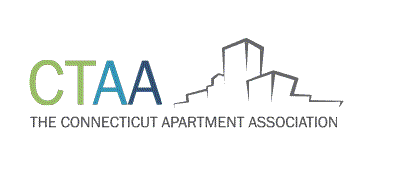On Sept. 1st, 2020, the CDC issued a temporary halt in residential evictions to prevent the further spread of COVID-19. The order imposed a temporary national moratorium on most evictions for non-payment of rent to help prevent the spread of the virus. The average person spends more than 30% of their income on housing and lives paycheck to paycheck with little to no savings. That is one of the reasons why the eviction moratorium was extended. The order applies to all standard rental housing, including mobile homes. It does not cover hotels, motels or other guest home rentals. A complete list of qualifications can be found at the National Low Income Housing Coalition website: nlihc.org.
The National Apartment Association recently published an article in Units Magazine called “Finding Rent Relief.” The article features a nonprofit organization founded in 2020 by a Los Angeles-based real estate firm created to assist residents facing eviction for the first time. It is called the Resident Relief Foundation or RRF. Over 12 months, the foundation raised over $90,000 that provided 41 grants. Their next goal is to raise $200,000 to assist 100 more families and individuals across the nation. Aid can be up to a month or two of rent paid to the property. They provide a “prevention model” offering assistance to those people identified by participating property management companies as potential recipients, hopefully BEFORE the situation becomes unmanageable. Budgeting classes and credit counseling are also offered. The RRF hopes to build support from property management professionals across the country. Link to the RRF at residentrelieffoundation.org.
Our state and local apartment associations have been hard at work promoting resources that are helpful to both property owners and renters. Many apartment associations are beginning to partner with the Resident Relief Foundation and similar organizations. With the allocation of Federal funds, new Community Action Programs are being established to support renters and owners/managers. There are also crisis assistance programs and utility assistance programs.
The U.S. Department of the Treasury’s Emergency Rental Assistance program revised its list of frequently asked questions (FAQs) in late February of 2021. It is a great resource to use as guidance for the ERA program requirements. It explains who is eligible for assistance, gives the definition of income, lists the methods to determine income and the documents to use.
Eligibility criteria vary from entity to entity, but the funds are always intended for those most in need. According to Federal guidelines, applicants for assistance through Federal funds are prioritized using the following criteria:
- Households living at or below 50% of AMI (Area Median Income);
- Households with a household member that has been unemployed for the past 90 days AND the household is at or below 80% of AMI.
The U.S. Department of the Treasury’s Emergency Rental Assistance program revised its list of frequently asked questions (FAQs) in late February of 2021. It is a great resource to use as guidance for the ERA program requirements. It explains who is eligible for assistance, gives the definition of income, lists the methods to determine income and the documents to use. For example, it refers to the published HUD database to look up what the Area Median Income figure is for our specific individual areas. Use this link: huduser.gov/portal/datasets/il.html. To obtain the Fair Market Rent or Small Area Fair Market Rent, visit: huduser.gov/portal/datasets/fmr.html. For a copy of the 8 page FAQs, visit the Occupancy Solutions website’s resource page.
We all need to be compassionate and patient during this time and help responsible residents who need to work through the rental assistance maze. Our current mantra should be “help keep responsible residents in their apartments!”
Elaine Simpson – President, Occupancy Solutions, LLC
Operations, Leasing, Marketing Consultant and Training Specialist
Elaine Simpson has been involved in the housing industry since 1986. Starting on site as a leasing agent, she moved up, working as assistant manager, site manager, executive director and finally senior regional manager with communities in several states and portfolios containing more than 1400 units. Ms. Simpson has worked for local and national industry leading companies and throughout her career, has trained new managers across the country, assisted in creating “Best Practices” and procedure manuals, participated in numerous task forces during national mergers, acquisitions and dispositions and headed “turn around” teams assigned to troubled communities, successfully increasing income while decreasing expenses and allowing the property to recover economic viability.
With over 30 years of experience in the multi-family industry, Elaine Simpson founded Occupancy Solutions, LLC to provide on-site operations, human resources, housing program compliance, maintenance, marketing, leasing, training and consulting services for multifamily professionals of market rate, senior and affordable housing communities throughout the United States. Occupancy Solutions assists communities by providing proven, cost-effective techniques and strategies that achieve increased occupancy, improve resident retention, minimize expenses and increase net operating income.
Ms. Simpson is a licensed real estate broker in Michigan and Arizona, a Certified Senior Real Estate Specialist, a member of the National Speakers Associations, a National Apartment Association Education Institute Faculty Member, an Accredited Resident Manager, a Certified Assisted Housing Manager and John Maxwell Certified Coach, Trainer and Speaker; American Apartment Owner Association member; National Association of Realtors, National Association of Residential Property Managers, Arizona Multihousing Association.
Please visit occupancysolutions.com for testimonials and more about Elaine Simpson and Occupancy Solutions.
Phone: 800-865-0948
Address: 21001 N. Tatum Blvd., Suite 1630-612, Phoenix, AZ 85050
Email: esimpson@occupancysolutions.com.










